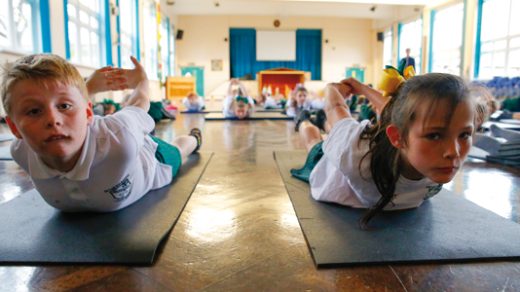Study of over 1.2 million students shows year-on-year decrease in reading

The annual ‘What Kids Are Reading Report’, a study of over 1.2 million pupils across the UK and Ireland from edtech provider, Renaissance, shows a 4.4 per cent year-on-year decrease in the number of books being read by children from Year 1 to Year 11.
For the last 16 years, the report has tracked the book-reading habits of the nation’s pupils, and this is the first time, outside of the first year of the pandemic, there has been a decline in the number of books read since research began in 2008.
26,114,262 books were read by 1,273,795 pupils in the 2022-2023 academic year compared to 27,265,657 by 1,282,647 pupils in the previous academic year.
The downturn in book reading echoes similar findings in declining reading attainment shown in longitudinal research on post-pandemic learning recovery from Renaissance and the Educational Policy Institute (EPI).
Additional research from Renaissance and GL Assessment shows teachers believe a third (33 per cent) of their pupils are weak readers and that children are struggling to keep up with the curriculum due to their reading ability. A quarter (26 per cent) of pupils are taken out of class for reading support with, on average, half a day of curriculum time per week given to helping students read.
Reading decline is particularly acute in secondary schools. The report finds that primary school pupils read harder books as they get older, but during secondary school there is a downturn, particularly from Year 9, with many secondary students reading books at a similar difficulty level to those of upper primary pupils.
Pupils read progressively more challenging books until Year 6, which then plateaus until Year 9 before a sharp drop in the difficulty of books being read by older secondary students. Pupils in primary schools also consistently showed a higher quality of comprehension when reading.
However, the research also confirms the link between more reading time in school with higher reading attainment.
Additionally presented in the What Kids Are Reading report are findings from a survey of 71,351 pupils by the National Literacy Trust (NLT). With these figures showing a 26 per cent decrease in the number of children reading daily in their free time since 2005, time devoted to reading in the classroom is more important than ever.
NLT data shows pupils’ enjoyment of reading in their free time at the lowest level since 2005 and is lowest among those receiving free school meals (39.5 per cent) compared to those who don’t (43.8 per cent).
Reading role models: favourite books 2024
The What Kids Are Reading report reveals trends and pupils’ attitudes towards popular authors and books. Alongside popular fantasy and light-hearted fiction, this year’s new entrants to the list of children’s most read authors/books showed a trend in children turning to books to find more representative and aspirational role models.
Footballer turned author Marcus Rashford is an inspiring role model, well-known for his advocacy and work for free school meals.
His book series, The Breakfast Club Adventures, draws on his own experiences at breakfast clubs and the support they provided to him and his family growing up. Another new entrant to the top list, Maria Isabel Sanchez Vegara’s Little People, BIG DREAMS series focuses on leading lights through history, from Marie Curie to Frida Kahlo.
And Bryan Patrick Avery’s Black Men in Science focuses on black men in history who have contributed to scientific developments.
The What Kids Are Reading Report was written using Renaissance data analysed by Professor Keith Topping from the University of Dundee.
Commenting on the overall decline in reading, Professor Keith said: “There are a number of possible reasons for the decline, but the high number of pupils persistently absent from school post-Covid is likely to be the biggest factor. This is especially true in secondary school as these pupils are more likely to be weaker readers.
“The key takeaway from this report is that more reading practice at an appropriate level of difficulty improves pupils’ reading performance, with more reading time in school leading to higher reading attainment. This has a knock-on impact on academic performance across the board.
“Focusing on comprehension and finding books they genuinely love will benefit pupils within and beyond the classroom. Schools and parents can support students by encouraging them to read often and consume more challenging books.”
Access the ‘What Kids Are Reading’ 2024 report here: www.whatkidsarereading.co.uk



